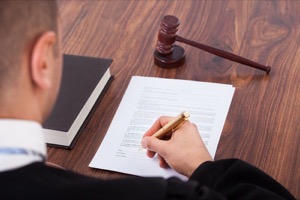Underage Drinking and Driving in North Carolina: What You Need to Know
 In North Carolina, violations of N.C.G.S. 20-138.3, especially for underage drivers, can be complex and challenging to understand. These statutes, part of the NC DWI laws, include specific limitations on Limited Driving Privileges. If you're under 21 and facing allegations of underage drinking and driving, coupled with a DWI charge under N.C.G.S. 20-138.1, the situation becomes even more intricate.
In North Carolina, violations of N.C.G.S. 20-138.3, especially for underage drivers, can be complex and challenging to understand. These statutes, part of the NC DWI laws, include specific limitations on Limited Driving Privileges. If you're under 21 and facing allegations of underage drinking and driving, coupled with a DWI charge under N.C.G.S. 20-138.1, the situation becomes even more intricate.
For drivers under 21 charged with driving while impaired, or what some may refer to as “DUI” or “DWI” or “drunk driving,” there is an additional suspension risk under the NC DWI laws. According to N.C.G.S. 20-13.2(b), the NC DMV can revoke your license upon conviction. Understanding these nuances is crucial to navigating your case effectively.
"People facing allegations of implied consent offenses like DWI and 20-138.3 violations need to understand that there may be more than one way DMV can revoke your license. It is a notoriously complicated area of law. It makes sense to seek legal representation immediately to determine eligibility for a limited privilege."
- Bill Powers, DWI Lawyer Charlotte NC
If convicted of DRIVE AFTER CONSUMING < 21, the license is also revoked under N.C.G.S. 20-13.2(a). Revocations pursuant to N.C.G.S. 20-13.2 last for 12 months. In North Carolina, the Courts and DMV refer to that as “enduring” for a year.
Guidebook to Navigating DWI DUI in North Carolina
After a conviction, a North Carolina Judge may grant a Limited Privilege in certain circumstances, but there are often restrictions.
What some people call a “hardship license” or “work privilege” is valid only if following a revocation under N.C.G.S. G.S. 20-17(a)(2) or from a conviction in another state for DWI, DUI, or impaired driving that is “substantially similar” as the NC DWI laws as set forth in 20-138.1.
Except as expressly authorized, any driving privilege issued is “invalid.” See N.C.G.S. 20-179.3(e)
If revoked for a conviction of DRIVE AFTER CONSUMING under 21 (G.S. 138.3), a Limited Privilege may be allowed if:
- Driver is 20, 19, or 18 years old on the date of the offense
- Has no prior conviction of DRIVE AFTER CONSUMING < 21
- Otherwise eligible and meets requirements such as Proof of Financial Responsibility, Compliance with Alcohol Assessment and Treatment, and payment of filing fees
If also convicted of driving while impaired for the same factual scenario, a Limited Privilege is not authorized due to an additional suspension as directed per N.C.G.S. 20-17(a)(2).
A revocation for Driving While Impaired (DWI) in North Carolina is subject to N.C.G.S. 20-179.3(k).
What Happens if You Refuse To Blow?
Courts may in their discretion, and for good cause having been shown, authorize a NC Limited Driving Privilege for “essential purposes” after a license revocation in North Carolina.
The Court’s (the Judge’s discretion) does not supersede the NC DWI laws and/or NCDMV policies.
Put simply, DMV can reject a limited privilege in certain circumstances, even if the Judge believes providing a way to get back-and-forth to work is appropriate.
"Lawyers experienced with NC DWI charges are used to clients referring to Limited Privileges as a ‘hardship license’ or ‘work privilege.’ It’s a mistake to assume driving is a right in North Carolina, especially after a conviction of DWI Impaired Driving or a Provisional Licensee violation."
- Bill Powers, North Carolina DWI Lawyer
Limited privileges issued outside North Carolina General Statutes (N.C.G.S.) 110-142.2, N.C.G.S. 50-13.12, N.C.G.S. 20-16.2(e1), or N.C.G.S. 20-16.1 are technically “invalid,” even if issued by a Judge.
Should I Hire a Criminal Defense Lawyer?
If that happens, the North Carolina Department of Transportation (DOT) - Division of Motor Vehicles (DMV) will notify both the driver (the person holding the limited privilege) and the Court (the Judge) that the “Division” deems the privilege invalid.
Takeaway points are:
- A “hardship license” or “work privilege” after a DWI in North Carolina is referred to as a Limited Driving Privilege
- Even if otherwise meeting statutory and other filing requirements, judges have discretion in allowing for a Limited Privilege
- The “Division” or NC DMV will confirm whether a Limited Privilege is valid and reject those that do not comply with the NC DWI laws
- Limited Privileges are issued if good cause has been shown - It is a type of Order
- Any license or privilege issued contrary to North Carolina General Statutes is deemed “invalid” in North Carolina
 Assuming the person seeking a Limited Driving Privilege in North Carolina is eligible, there are some administrative issues and documentation required, including:
Assuming the person seeking a Limited Driving Privilege in North Carolina is eligible, there are some administrative issues and documentation required, including:
Proof of Financial Responsibility – In North Carolina proof of insurance is normally shown in a DL-123 form.
Call Bill Powers – NC DWI Lawyer and Author of the North Carolina DWI Quick Reference GuideBill Powers is an experienced courtroom attorney and advocate for justice.
The former President of the North Carolina Advocates of Justice (2016-2017), he is active in the legal profession and development of the North Carolina DWI Laws.
The NC DWI Laws You Need To Know
The lawyers at our law firm offer a FREE CASE EVALUATION for DWI charges in North Carolina.
Bill Powers is licensed only in the State of North Carolina and therefore limits his practice to North Carolina.
You may contact Bill by calling 704-342-4357 or Bill@342HELP.com
Navigating the complexities of North Carolina's DWI laws, especially for underage drivers, can be daunting.
With potentially severe penalties, including mandatory license revocation and stringent limitations on Limited Driving Privileges, it's a good idea to have a knowledgeable advocate by your side.
At our firm, we will help explain the intricacies of N.C.G.S. 20-138.3 and N.C.G.S. 20-138.1 and are dedicated to guiding you through every step of the legal process.
Our experienced team is committed to providing personalized attention to each case, ensuring that you understand your rights and options.
We recognize that facing a DWI charge can be an overwhelming experience, particularly for young drivers who are just beginning their journey on the road.
That's why we focus on delivering clear, comprehensive legal counsel tailored to your unique situation. Each case is different. That’s one reason it makes sense to consult with an experienced DWI lawyer if you face charges.
We help people in places like Monroe, Charlotte, Statesville, Gastonia, Lincolnton, and Salisbury.
Our goal is not only to mitigate the immediate consequences of a DWI charge but also to protect your long-term interests.
Moreover, we believe in the importance of education and awareness.
We take the time to explain the legal implications of your DWI charges in Charlotte and the surrounding jurisdictions in Union County NC, Iredell, Lincoln, Rowan, and Gaston County, North Carolina, and the potential impact on your future.
By keeping you involved throughout the process, we empower you to make informed decisions about your defense.
Choosing the right DWI defense lawyer can make a significant difference in the outcome of your case.
Our firm is dedicated to providing legal representation with a focus on achieving positive results. If you or a loved one is facing a DWI charge in Charlotte, North Carolina, particularly under the age of 21, don't hesitate to contact us. We are here to help you navigate this challenging time.
Want Helpful Information About DUI Charges in North Carolina?- What is “DWI First” and does that make a difference in NC?
- FAQs about DWI charges
- What happens if you’re convicted of DWI?
- DWI charges in North Carolina: What you need to know
- Under 21? What happens if you get charged with DUI in North Carolina?
- Is there a difference between DUI and DWI?
- FAQs about DUI charges in Monroe NC
- FAQs about DUI charges in Iredell County, North Carolina
- Criminal Defense Lawyers in Monroe, North Carolina
 Powers Law Firm PA Home
Powers Law Firm PA Home



















